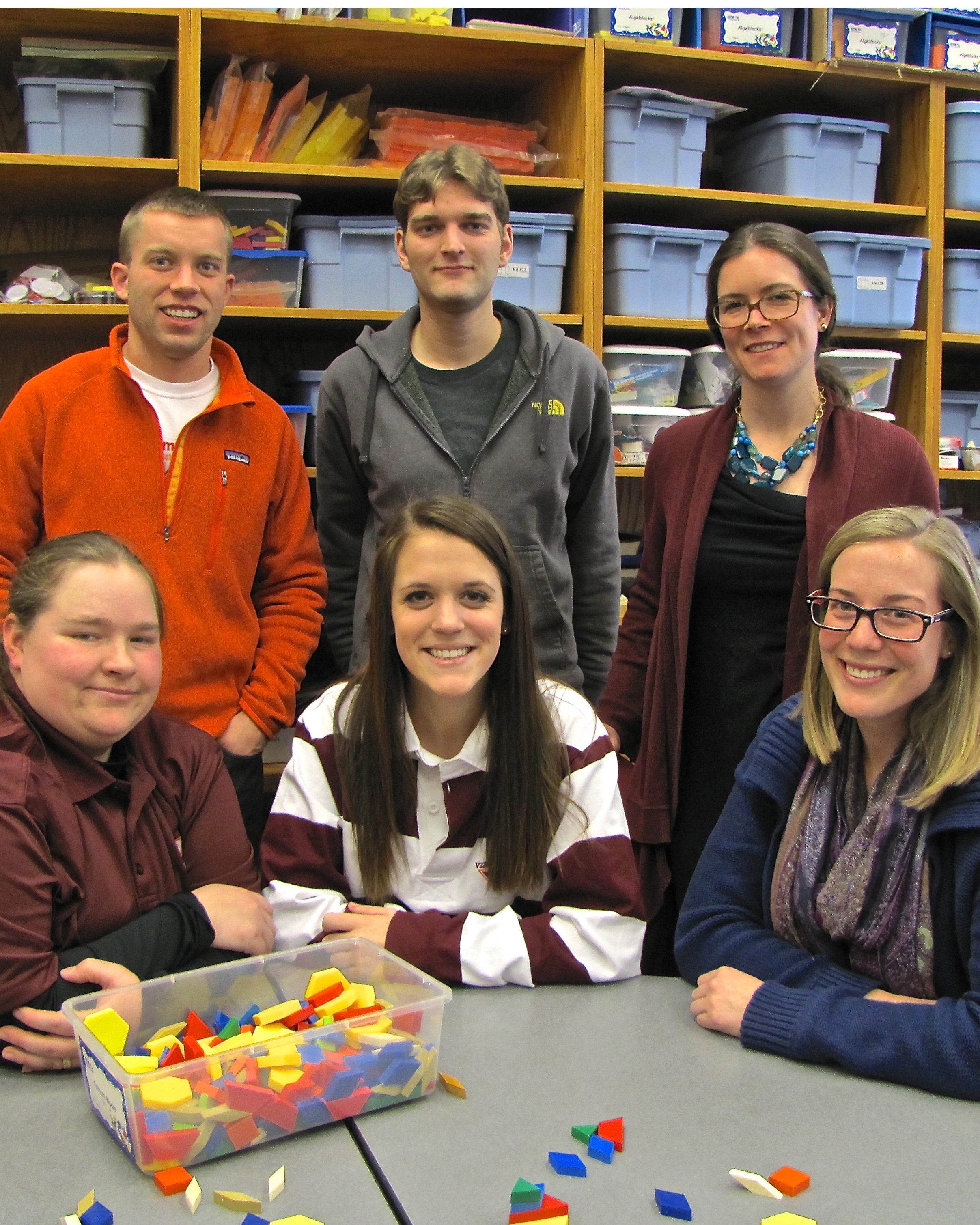Education and mathematics partner for $800,000 grant to serve high-needs schools

Recognizing the growing demand for teachers in the fields of science, technology, engineering, and mathematics (STEM), the National Science Foundation has awarded an $800,000 Robert Noyce Teacher Scholarship grant to a faculty team at Virginia Tech.
The grant was made to Assistant Professor Catherine L. Ulrich, principal investigator for the project “Virginia Teach Phase II: A Community-based Approach to Serving Mathematics Students in Need,” and two colleagues in the university’s School of Education/Teaching and Learning: Professor Jesse L. Wilkins and Clinical Associate Professor Bettibel C. Kreye.
Also collaborating on the project are Associate Professor Anderson Norton III, Assistant Professor Megan Wawro, and Senior Instructor Susan Hagen in the Department of Mathematics in the College of Science.
The Noyce scholarship program encourages STEM majors and professionals to become K-12 mathematics and science teachers. In return for support from Virginia Teach, which awards one- to three-year scholarships, recipients make a commitment to teach in high-needs school districts.
Virginia Teach is currently a partnership between the university’s School of Education, Department of Mathematics, Montgomery County Public Schools, Roanoke City Public Schools, New River Community College, Southwest Virginia Community College, and Virginia Western Community College. Its mission is to increase the number and quality of new secondary-school mathematics teachers.
Phase II of the project builds on a previous program that supported 30 scholars. It will provide scholarships to another 25 Virginia Tech students whose goal is to teach secondary mathematics in high-need school districts across the commonwealth.
The project is one of 20 selected nationally for funding from a total of 103 proposals.
“Phase Two gives us the opportunity to build partnerships with local community colleges and an additional school district,” Ulrich said. “We look forward to working with our partners to serve schools in rural and urban parts of the state. Together, we can explore the most effective way to support the long-term transition from student to master teacher.”
Norton, the principal investigator for phase 1 of the Noyce grant, said the program’s success was recently affirmed by an assistant principal in Prince William County.
“The reason I am emailing is to let you know what a great job your program is doing preparing teachers who are ready to enter our profession,” wrote Ryan Ferrera of Woodbridge Senior High School. “I’m getting to a point where, if I see that they are coming out of your program, I already know they are well prepared for the profession.”
Norton said the success of Noyce scholars is due in part to the fact that the program takes five years to complete. With that extra year, he said, they get three semesters of field experience and interaction with students, so they leave Virginia Tech already knowing what to expect in their teaching positions.
Virginia Tech alumna Jordan Pinkard, a former Noyce scholar, teaches geometry and statistics at William Fleming High School in Roanoke.
Pinkard praised the program for building “a network of aspiring teachers and experienced educators willing to share their ideas and experiences.” It also gives scholars the means to meet colleagues from across the commonwealth at the annual Virginia Council of Teachers of Mathematics conference, a two-day professional development event, Pinkard said.
The current Noyce Scholars at Virginia Tech are graduate students Julie Aurora of Blacksburg, Va.; Sarah DeVito of Centreville, Va.; Ben Petersen of Falls Church, Va.; Shawn Savage of Bear, Del.;Brett Sherfy of Sterling, Va.; Katie Shonk of Virginia Beach, Va.; and Andrea Suddeth of Fries, Va..




